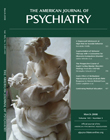To The Editor: We thank Dr. Poyurovsky et al. for their thoughtful comments regarding our observation of restlessness in subjects switched to aripiprazole as well as their discussion of the pathophysiological mechanisms involved. We agree that understanding these mechanisms has important implications given the association between akathisia and adverse clinical outcome. Dr. Poyurovsky et al. highlight our suggestion that aripiprazole’s relative freedom from extrapyramidal side effects may be related to the drug’s partial agonism at D 2 receptors and that the high rate of restlessness noted in our positron emission tomography study may have been an expression of akathisia. In our study, two subjects experienced clear evidence of extrapyramidal side effects (increased tone in upper extremities and acute dystonia responsive to benztropine), and five subjects reported some degree of restlessness. For the two subjects with extrapyramidal side effects, a combination of individual pharmacokinetic variability or decreased D 2 receptor reserve may be the more plausible explanation for their vulnerability to these side effects.
Dr. Poyurovsky et al. further suggest that while aripiprazole’s partial agonism at the D 2 and 5-HT 1A receptors may have contributed to the low incidence of extrapyramidal side effects, this pharmacological profile does not prevent akathisia. They argue that protection from drug-induced akathisia is likely related to high 5-HT 2 binding relative to D 2 binding. While the effect of 5-HT 2 antagonism on extrapyramidal side effects remains formally untested in the literature, the antipsychotic drugs with the highest 5-HT 2 :D 2 binding ratio (risperidone and paliperidone) are actually associated with high rates of extrapyramidal side effects and akathisia, arguing against a simple 5-HT 2 protective effect. Moreover, many drugs with a variety of mechanisms have been used to manage akathisia, such as beta blockers, antihistaminics, and benzodiazepines, arguing against a pure 5-HT 2 effect.
Finally, not all restlessness is akathisia. Restlessness is associated with a number of psychotropic drugs, including antipsychotics, preoperative sedatives, and antidepressants, and responds to drugs with different pharmacological profiles. The restlessness reported by patients receiving aripiprazole is often described qualitatively in more positive terms, including a feeling of increased energy and interest in a more active lifestyle. It is therefore possible that the restlessness noted in some, if not the majority, of the patients receiving aripiprazole may not be true “akathisia” but rather a state of activation induced by a central dopamine agonist effect. Given the high prevalence of this outcome as well as the potential clinical and mechanistic significance as discussed by Dr. Poyurovsky et al., restlessness occurring in the context of aripiprazole treatment deserves closer scrutiny in future studies at both the phenomenological and mechanistic levels.

